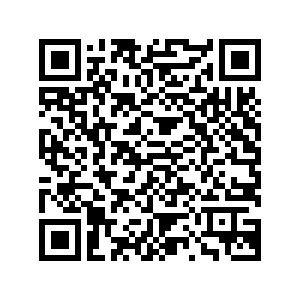SEOUL, April 11 (Xinhua) -- Disgruntled South Korean voters turned to the main liberal opposition Democratic Party in parliamentary elections as calls mounted to pass judgment on the government of President Yoon Suk-yeol amid rising worry about economic downturn and lopsided diplomacy.
The main liberal opposition Democratic Party and its satellite party won 161 constituency seats and 14 proportional representation (PR) slots, respectively, the National Election Commission said Thursday.
The broader liberal bloc, including the minor liberal Rebuilding Korea Party, the minor center-left New Future Party and the minor leftist Progressive Party, secured a total of 189 parliamentary seats.
The governing conservative People Power Party and its sister party obtained 90 constituency seats and 18 PR seats each, while the minor center-right New Reform Party garnered one constituency seat and two PR seats.
The quadrennial polls for 300 members of the National Assembly were carried out across the country on Wednesday to let voters cast ballots for 254 constituency seats and 46 PR seats.
Concerns deepened over the South Korean economy, which had shown precarious indicators since Yoon took office in May 2022 for a single five-year presidency.
Real gross domestic product (GDP), adjusted for inflation, added 1.4 percent in 2023 after expanding 2.6 percent in 2022 and 4.3 percent in 2021. The real GDP declined 0.7 percent in 2020 amid the COVID-19 pandemic.
Export, which accounts for about half of the export-driven economy, reduced 7.4 percent in 2023 from a year earlier, turning downward in three years since 2020.
Trade deficit came to 9.97 billion U.S. dollars in 2023 after reaching 47.78 billion dollars in the previous year.
The consumer price inflation had roughly been on the decline after peaking at 6.3 percent in July 2022, but it never fell below the central bank's mid-term inflation target of 2 percent under the current government.
Worry escalated over the Yoon administration's lopsided diplomacy that only focused on the trilateral relations with the United States and Japan while failing to woo other corners of the world.
Kim Joon-hyung, former chancellor of the Korea National Diplomatic Academy, said in a column for a local newspaper that Yoon's diplomacy was nothing more than an ideologically-biased diplomacy, which narrowed Seoul's diplomatic position and its space for national interests while just showing off solidarity with the United States and Japan.
A former senior government official was quoted by newspaper Hankyoreh as saying that Yoon lost Seoul's diplomatic autonomy and independent voice by continuously running a biased diplomacy in the name of "value diplomacy."
Chung Dong-young, who was elected in parliamentary elections as the fifth-term lawmaker of the Democratic Party, said earlier this year that Yoon's value diplomacy was a lopsided diplomacy making South Korea subordinate to the United States and Japan.
Yonhap news agency noted that the April 10 general elections resulted in a landslide victory for the opposition bloc and a crushing defeat for the ruling party, which indicated that the public passed judgment on the entire governing power.
Yonhap assessed that voters gave a red card to demand the government overhaul its style of managing state affairs. ■
